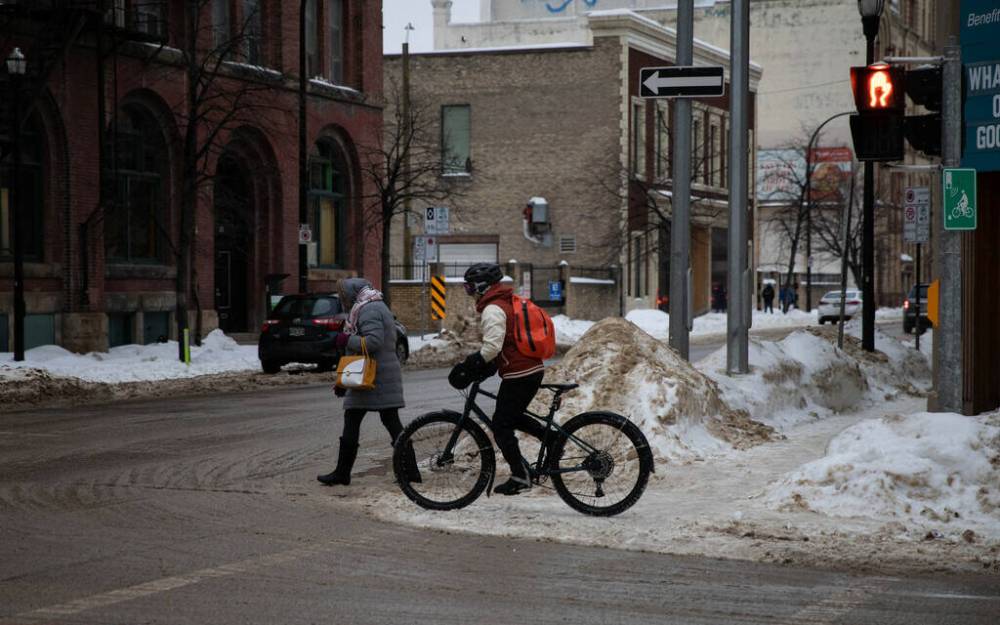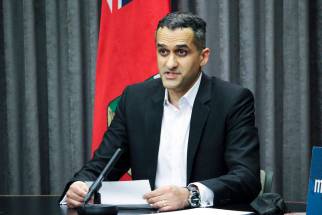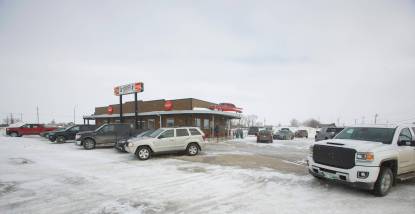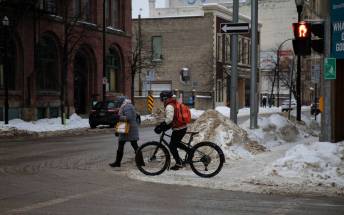Trust in government crucial during reopening
Read this article for free:
or
Already have an account? Log in here »
To continue reading, please subscribe:
Monthly Digital Subscription
$0 for the first 4 weeks*
- Enjoy unlimited reading on winnipegfreepress.com
- Read the E-Edition, our digital replica newspaper
- Access News Break, our award-winning app
- Play interactive puzzles
*No charge for 4 weeks then price increases to the regular rate of $19.00 plus GST every four weeks. Offer available to new and qualified returning subscribers only. Cancel any time.
Monthly Digital Subscription
$4.75/week*
- Enjoy unlimited reading on winnipegfreepress.com
- Read the E-Edition, our digital replica newspaper
- Access News Break, our award-winning app
- Play interactive puzzles
*Billed as $19 plus GST every four weeks. Cancel any time.
To continue reading, please subscribe:
Add Free Press access to your Brandon Sun subscription for only an additional
$1 for the first 4 weeks*
*Your next subscription payment will increase by $1.00 and you will be charged $16.99 plus GST for four weeks. After four weeks, your payment will increase to $23.99 plus GST every four weeks.
Read unlimited articles for free today:
or
Already have an account? Log in here »
Hey there, time traveller!
This article was published 09/02/2022 (1407 days ago), so information in it may no longer be current.
Manitoba’s experience with the pandemic has clearly shown the danger of unquestioning faith that the government knows best when it comes to easing pandemic restrictions. The public has learned to seek the data behind decisions. In other words, show us the science.
Unfortunately for Manitobans, the current Progressive Conservative government is among those that have demonstrated a troubling tendency to refuse full disclosure of factual information about the pandemic and its ramifications.
The current Progressive Conservative government is among those that have demonstrated a troubling tendency to refuse full disclosure of factual information about the pandemic and its ramifications.
During a week when Saskatchewan, Alberta and Quebec have announced hard timelines for lifting COVID-19 restrictions, there’s reason to believe an easing of public-health measures is also on the horizon for Manitobans, and that we may be heading to a future when the COVID-19 virus is regarded as a bad flu.
Chief Public Health Officer Dr. Theresa Tam said last Friday Canada needs to find a more “sustainable” way to deal with the pandemic and that all existing public-health policies, including provincial vaccine passports, need to be “re-examined.”
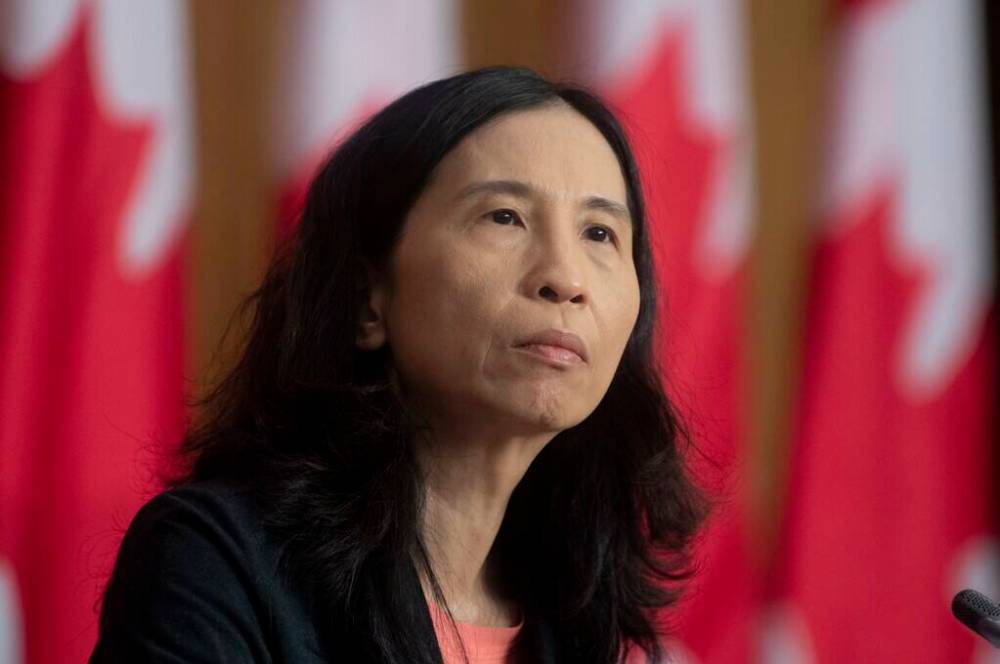
“What we need to do going forward, as we emerge out of this Omicron wave, is recognize this virus is not going to disappear,” she said. “We do need to get back to some normalcy.”
A path to normalcy is an encouraging prospect, as long as the reopening is supported by sound data, which hasn’t always been the case in Manitoba.
Deciding whether to ease restrictions requires knowing whether COVID-19 is surging or declining in Manitoba. That information is not publicly available, however, because with one exception, the government has essentially curtailed all previous methods of tracking COVID-19 cases; schools, daycares and people who self-test can no longer report their positive tests to the government.
The government has essentially curtailed all previous methods of tracking COVID-19 cases; schools, daycares and people who self-test can no longer report their positive tests to the government.
The one exception is wastewater testing. Manitoba is testing for COVID-19’s presence in sewage; unfortunately, the province has so far declined to share these results.
Such secretiveness must end. Manitoba should follow the lead of the many jurisdictions that regularly report the coronavirus count in their sewage, and clearly explain the implications of the data.
The public should also be privy to more information on Manitoba’s health-care system, to more accurately judge whether easing restriction will make it even tougher on hospitals and the people who staff them. For example, the public has long awaited details about of the province’s expected timeline to cope with a pandemic-swollen backlog of more than 150,000 diagnostic and surgical procedures. Will this backlog grow even longer when the easing of restriction allows more mingling?
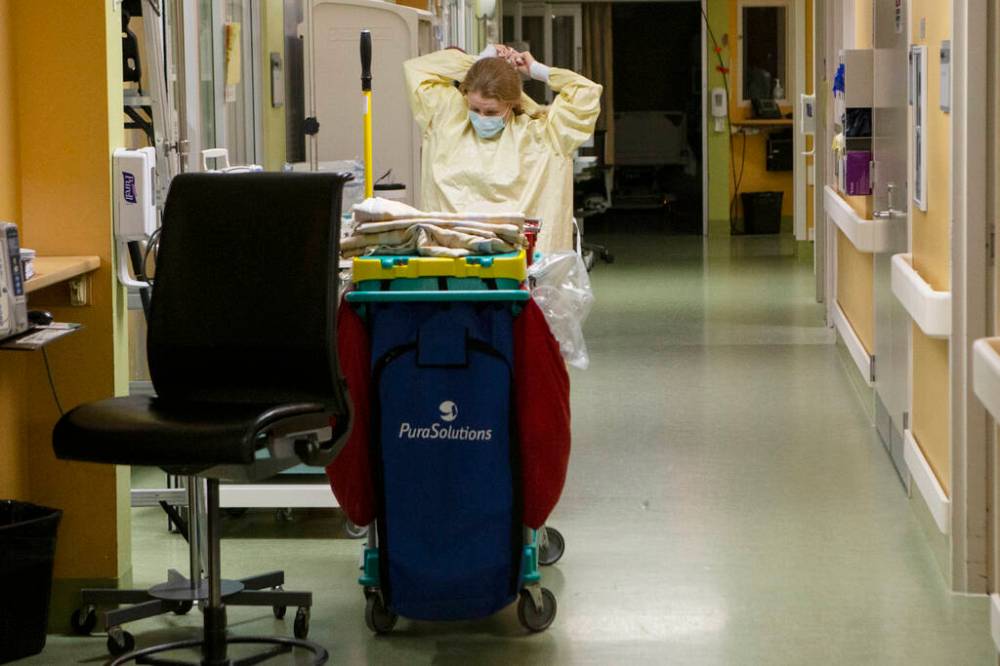
Yet another source of information that would help Manitobans understand the reopening plan is the province’s statistical modelling, which is infrequently released to the public. This intelligence — which typically predicts the likely spread of the disease and related issues — is presumably updated regularly to reflect changing circumstances, such as surges in COVID-19 cases in neighbouring provinces, or the development of new variants. The province should release all such modelling, not just the data that supports the government’s agenda.
Some government advisors who are traditionally resistant to transparency — those inclined toward the “knowledge-is-power” school of political gamesmanship — might be apprehensive about affording the public unfiltered access to relevant data.
Some government advisors who are traditionally resistant to transparency– those inclined toward the “knowledge-is-power” school of political gamesmanship — might be apprehensive about affording the public unfiltered access to relevant data.
But the sharing of information should be viewed as an important tool in rebuilding trust between Manitobans and a government whose leader currently has the lowest support of any Canadian premier, according to a recent Angus Reid poll that pegged Heather Stefanson’s support at 21 per cent.
One of the frequently employed catchphrases during the pandemic is “learning to live with the virus.” Clearly, Manitobans are eager to learn to live with it — but in ways that are scientifically defensible.
